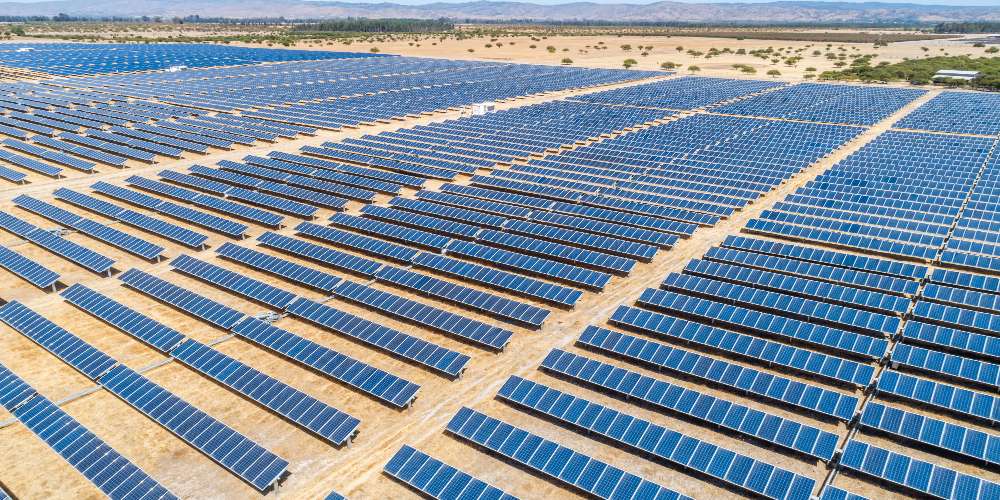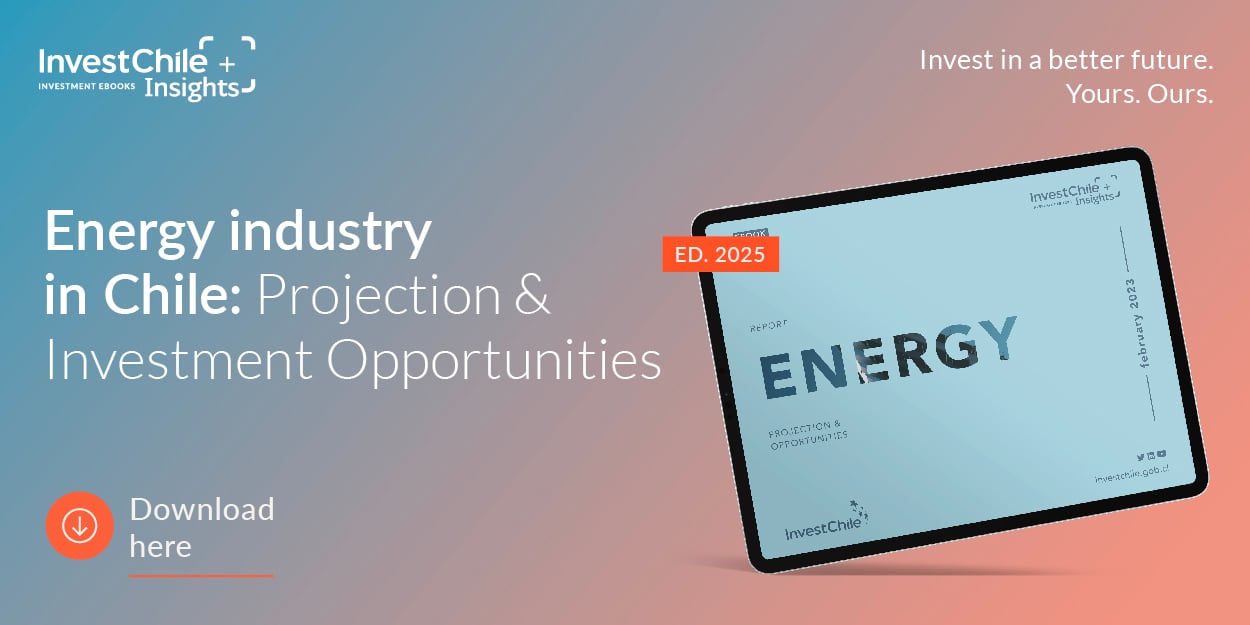Catherine MacGregor, the firm’s global CEO, and Rosaline Corinthien, CEO of the Chilean division, point out the strategic nature of Chile’s energy transition and highlight the growth of green production, which is already rising above 33%.

The French energy company, ENGIE, is promoting a profound transformation around the world. Its Chilean division is playing a leading role, with the closure of several of its coal-fired power plants and a strong commitment to renewable plants.
The global CEO of the firm, Catherine Fiamma MacGregor (CM), recently paid a visit to the country, where she met with Energy Minister Diego Pardow. She took the opportunity to highlight the firm’s plans, which includes the goal for which she was appointed CEO in 2021: to accelerate the energy transition around the world.
“In Chile, where we have been operating for 100 years, we are carrying out this transformation on a national scale. It’s very strategic for us, because being successful in Chile is also proof of what we can do on a global scale,” states the leader of the firm, recognized in several international rankings as one of the most powerful women in the world.
At the local level, the energy company is also headed by a woman. Rosaline Corinthien (RC) took on the job last year, replacing Axel Leveque with the goal of completing the company’s second batch of renewable projects in Chile.
—What is Chile’s importance for ENGIE in the context of this energy transition?
(CM): “Chile is a strategic country for ENGIE. ENGIE is very active in accelerating the energy transition around the world, and this means that we have to develop a large amount of renewable energy and renewable gas, as well as decarbonization solutions for our customers.”
—Are you looking to replicate your experience in Chile in other places?
(CM) “We are transforming our generation portfolio, which used to be high in CO2 emissions, into a low carbon generation portfolio. For example, in 2018, 1% of our generation capacity in Chile came from renewable energy; today, it’s 33%.
We also believe that, for the energy transition to be successful around the world, it must be low carbon and affordable. Affordability is very important. And for this, you need to have the right combination. So, a lot of renewable energy, but also an element of flexibility that will be provided, for example, through storage solutions. So, here in Chile we’re doing the renewable part, but we’re also maintaining flexibility by developing new storage capacities, which is why we have a storage project currently under development in Chile. And we’re transforming gas plants from what used to be baseload to a more flexible use, which will help with renewable energy development.”
—What do you expect from Chile in the context of the transition strategy and the next steps to come?
(CM): “First of all, Chile is blessed with incredible natural resources: wind, especially in the south, and solar in the north. So, overall, we’re very excited about the country and its capabilities. We’re also excited that the country has set some ambitious goals to achieve carbon neutrality by 2050, and to leave coal behind as well. As the traditional coal operator in the country, ENGIE is also committed to leaving coal behind by 2025. All this is aligned with what we want to do as a group and what we can do in Chile. I think there are some steps that need to be consolidated with regard to how to develop flexibility, in terms of market design and, of course, transmission, which is a typical bottleneck that all countries face when looking at renewable energy development.”
—What are the investment plans for the country?
(CM): “In the next three years, ENGIE will invest between 13 and 14 billion euros in renewable energy around the world, so our planned investment in Chile is around US$1.8 billion. This represents around 15% of our global investment, considering only renewable energy.”
—What are the keys to continue expanding the decarbonization plan?
(RC): “The ambitious goals set out by the government are clear. What we really need is not to have to make this energy transition only by ourselves, and in this sense, we must work alongside the authorities.”
—How is the portfolio of 1,400 MW projects that you are developing coming on, and what will be your focuses?
(RC): “We know that it won’t be easy, because a lot of dialogue is required with local communities in terms of accessibility, as well as with the authorities in terms of permits. So, we’re really determined to deliver this portfolio by 2026, which is quite soon. We already have projects under construction to begin operating in 2023 and 2024, but we now have to deliver beyond that to 2026 in order to reach this goal, including the important BESS battery storage project. We believe there is room for around 600 MW of battery capacity that could be combined with photovoltaic energy or could stand alone at our existing sites as part of the just transition, for example in Tocopilla. All these options are being analyzed.”
—Are the right signals there for the development of storage technologies?
(RC): “We are currently still in discussion with the authorities to determine how to promote this type of investment in the right way in the right places in Chile. We’re still waiting for that, but we also need to come up with some ideas for the authorities in terms of market design to make it happen. But it’s true that, in terms of price signal, we really need this flexibility, especially in a country that needs it during daylight hours. It’s very important to implement this to boost our investment.”
Source: El Mercurio.
If you want to know more about solar farms development in Chile, check out the following article.



%2017.11.51.png)

